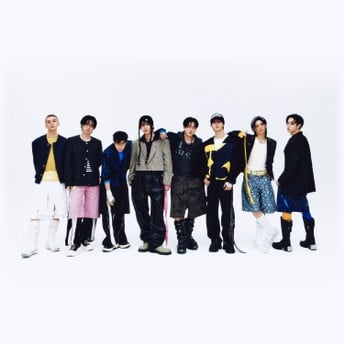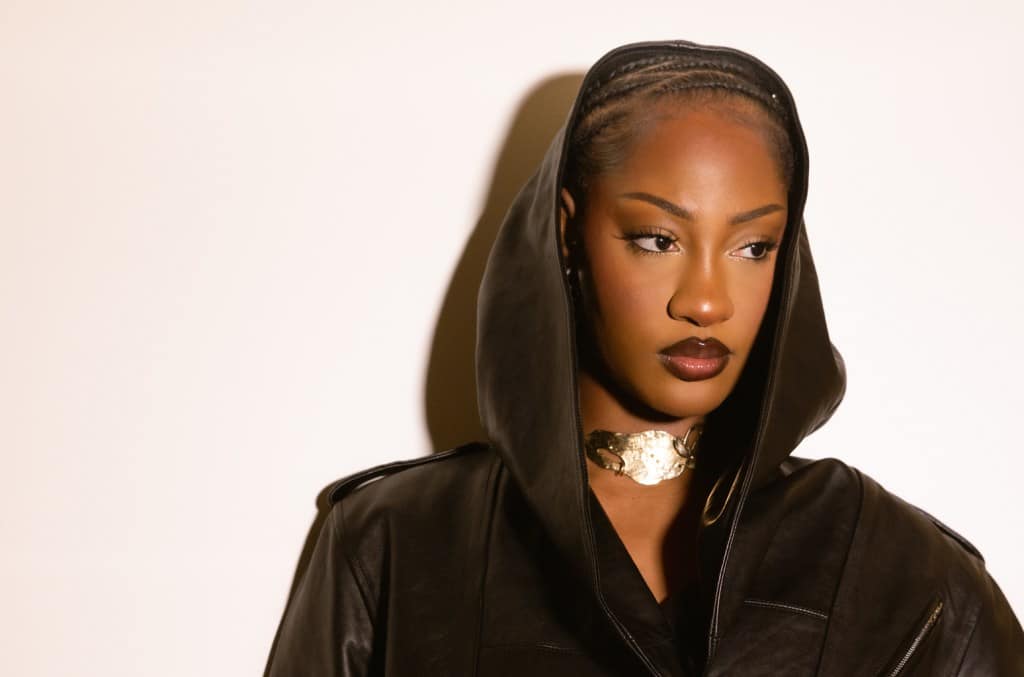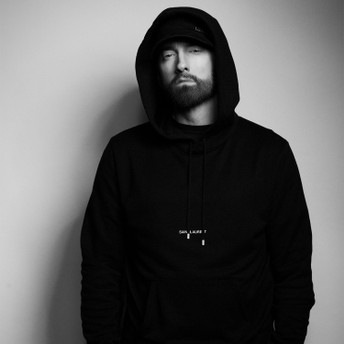Music
Page: 14

Trending on Billboard Doja Cat and SZA’s groovy “Take Me Dancing” collaboration caught fire on social media thanks to a viral TikTok trend, which was created by an Australian superfan named Joel Houwen in September following the arrival of Doja’s Vie. Explore See latest videos, charts and news She brought the Tour Ma Vie World […]
Trending on Billboard
INI’s “Present” soars to No. 1. on this week’s Billboard Japan Hot 100, on the chart dated Nov. 26, halting Kenshi Yonezu’s nine-week reign over the tally.
“Present” serves as the lead track off INI’s new single THE WINTER MAGIC, released Nov. 19. The CD launched with 1,213,001 copies to become the eleven-member boy band’s first million seller, and moved 15,230 downloads to rule the metric. It also hits No. 2 for radio airplay, No. 44 for streaming, and No. 80 for video views. The group earns its fifth No. 1 hit with “Present,” following “CALL 119,” “Password,” “LOUD,” and “WMDA (Where My Drums At).”
Explore
See latest videos, charts and news
Kenshi Yonezu’s “IRIS OUT” slips to No. 2 after dominating the Japan Hot 100 for the past nine weeks. Though it falls a notch on the list, the Chainsaw Man – The Movie: Reze Arc theme continues to hold atop the streaming and video tallies for the tenth straight week since its debut, and extends its streak on karaoke to seven weeks.
Four tracks from the RADWIMPS tribute album Dear Jubilee -RADWIMPS TRIBUTE- land inside the top 10: Mrs. GREEN APPLE’s “Kyoshinsho” at No. 4, Vaundy’s “Zenzenzense” at No. 5, Kenshi Yonezu’s “Tremolo” at No. 6, and My Hair is Bad’s “Iindesuka?” at No. 7. 13 of the album’s 14 tracks have entered the chart. The original songs by the band are also resurging, with titles such as “Sokkenai,” “Kaishin no Ichigeki,” “Kyoshinsho,” and “Iindesuka?” rising primarily on streaming.
Meanwhile, Gen Hoshino’s “Ikidomari” jumps 22-8 this week, boosted by radio (up 773% from last week) and streaming (up 142%).
The Billboard Japan Hot 100 combines physical and digital sales, audio streams, radio airplay, video views and karaoke data.
See the full Billboard Japan Hot 100 chart, tallying the week from Nov. 17 to 23, here. For more on Japanese music and charts, visit Billboard Japan’s English X account.
Trending on Billboard
Megan Moroney and Morgan Wallen were never officially dating, or exclusive, as far as their fans know. But there was definitely something between the two country stars a few years ago when they were linked following the release of Moroney’s suggestive “Tennessee Orange,” a love song about a Georgia girl who falls in love with a charming Tennessee man that hit No. 30 on the Billboard Hot 100 in October of 2022.
Explore
See latest videos, charts and news
“I think Morgan is great and his new album [I’m the Problem] is great,” Savannah, Ga. native Moroney told People magazine about the latest album from Sneedville, Tennessee’s Wallen, 32. “Him and I are still friends.”
Moroney, 28, said she is well-aware that people love to dig into the unspoken meaning behind her lyrics, telling the magazine that she is focused on “being honest” in her songs. “I never let the possibility that people might speculate who [a song] is about, stop me from writing about how this situation made me feel,” said the singer. In “Tennessee Orange” Moroney calls to tell her mom — and warn her dad — that “I met somebody and he’s got blue eyes/ He opens the door, and he don’t make me cry/ He ain’t from where we’re from, but he feels like home/ Yeah, he’s got me doing things I’ve never done.”
At the time, fans speculated about the possible Wallen link to “Tennessee Orange,” after the country stars started commenting on each other’s Instagram posts. In a 2024 Call Her Daddy podcast appearance Moroney said the pair “never exclusively” dated and wouldn’t confirm that the song is about Wallen, who she met right before the 2020 COVID-19 pandemic when she was a senior in college.
“We were friends for a long time. We were not just friends. And now we’re friends,” she explained at the time. “I feel like he’s a very private person. We weren’t exclusively dating ever and I think that both of our schedules… when we tried to hang out it was like, ‘OK, we have this one day of the whole month where we’re both maybe in town and then the other has something going on.’”
Between her song, the Instagram comments and Wallen’s 2023 One Thing at a Time song “Tennessee Fan” — about him meeting a sorority girl from Alabama who rolls her allegiance over to Tennessee after he takes her to a Vols college football game — fans had lots of thoughts on their potential love affair.
And though Wallen has not spoken in public about their connection, in a 2022 interview with SiriusXM’s The Highway in 2022, Moroney confirmed that the Vols shirt she wore in a promo photo for “Tennessee Orange” belonged to Wallen.
The weather outside may be frightful, but the music will be so delightful this holiday season, as acts of all musical stripes are embarking on Christmas tours sure to bring cheer. Whether you like your yuletide mixed with a little country, R&B, jazz or rock, there is sure to be a tour or two or […]

Trending on Billboard
The Contenders is a midweek column that looks at artists aiming for the top of the Billboard charts, and the strategies behind their efforts. This week, for the upcoming Billboard 200 dated Dec. 6, a couple true chart heavyweights duke it out for the top spot.
Explore
See latest videos, charts and news
Stray Kids, DO IT (JYP/Republic): A new five-track mixtape wouldn’t be a particularly big threat from most artists to take down the record-setting new album by the biggest pop star in the world. But when it comes to the Billboard 200, Stray Kids isn’t most artists. Between albums, EPs and mixtapes, the South Korean pop octet has launched seven sets onto the Billboard 200 since 2022 — and all seven of them have debuted at No. 1. The Kids haven’t missed the top spot yet.
Now, they look to go eight-for-eight with DO IT, the five-track set officially being called the group’s new mixtape, released last Friday (Nov. 21). The release, which offers both a regular version and a “Festival Version” of its title track as its bookending cuts, got off to a strong streaming start, with each of its four new tracks debuting on Spotify’s Daily Top Songs USA chart. (“Do It” remains on the listing four days later.)
But as is usually the case with Stray Kids, physical sales will likely provide the biggest chunk of the album’s overall first-week consumption. To that end, the group has made DO IT available in a wide array of formats — including seven CD variants, all featuring collectibles (some randomized). There’s also four total webstore-exclusive download versions of the mixtape, each of which adds its own “chat” bonus audio tracks with the bandmembers.
Will it all be enough for the Kids to unseat Republic labelmate Taylor Swift’s The Life of a Showgirl, which has reigned for the first seven weeks of its release? Well, in its seventh and most recent week at No. 1, Showgirl amassed 93,000 total equivalent album units. The group’s last Billboard 200-topper, this September’s full studio album KARMA, bowed with 313,000 units. The shorter DO IT might not post numbers quite so robust, but if it’s anywhere in range of that number — well over triple what Showgirl posted in last week — it’s going to be pretty challenging for Swift to make up the difference.
Wicked Movie Cast, Cynthia Erivo & Ariana Grande, Wicked: For Good — The Soundtrack (Republic/Verve): Even without a new Stray Kids project, it would still be far from smooth sailing for Swift’s blockbuster on the Billboard 200 this week. Showgirl also has to compete with perhaps the year’s most-anticipated movie soundtrack (and yet another fellow Republic release), with the accompanying OST to blockbuster film musical sequel Wicked: For Good also debuting on Friday — featuring musical contributions from co-stars Cynthia Erivo and Ariana Grande, as well as cast members Jonathan Bailey, Michelle Yeoh, Jeff Goldblum and more.
The set has also gotten off to a solid start on DSPs, with a number of songs debuting on the Spotify Daily Top Songs USA chart — most of which have stuck around throughout the week, most notably Erivo and Grande dueting on the “For Good” title track. The album should also sell well to the musical’s (and stars’) many obsessive fans, particularly with seven vinyl and four CD variants available for purchase, one of the latter also coming signed by Erivo and Grande.
Does For Good also have a strong chance at a six-digit debut? If the performance of the original Wicked: The Soundtrack is any indication, then yes: That set bowed with 139,000 units in December 2024, with 85,000 of that number coming in sales. This set may come up a little short of that, with the musical’s first half containing some of its more traditionally beloved songs, like “Defying Gravity” and “Popular.”
But this new set does have the benefit of a pair of new compositions: the Erivo solo “No Place Like Home” and Grande solo “The Girl in the Bubble.” And it also now has a historic box office bow for the movie it accompanies — not to mention Thanksgiving weekend (and Black Friday) coming up — meaning that if it doesn’t get to 100k this week, it very well still might in week two.
Trending on Billboard Luke Combs has performed on many of the most coveted stages around the world, but this two-time CMA entertainer of the year winner would also be open to performing on ‘s biggest stage. During his Nov. 24 appearance on MNF Manningcast, hosted by NFL quarterback greats Eli and Peyton Manning, the discussion […]
Trending on Billboard
The last time Simon Cowell saw Liam Payne was a year before the former One Direction singer and solo star plunged to his death in a fall from the third-story balcony of a Buenos Aires hotel on Oct. 16, 2024. Speaking to the Rolling Stone Music Now podcast this week, Cowell described their final meeting and the conflicted feelings he’s struggled with in the time since about his role in thrusting the 31-year-old singer into global fame.
Explore
See latest videos, charts and news
“I saw him a year before this happened. He came over to my house. We talked about his son and being a dad,” Cowell said Cowell said in a Rolling Stone Music Now podcast (Payne talk begins at 40-minute mark) about their discussion of Liam’s now seven-year-old son, Bear, with former partner Cheryl Cole. “I remember saying, ‘Music is not everything, by the way. You’re in a position where you can decide when you want to put something out and when you don’t want to put something out. But don’t let it run your life anymore. Find something else that you’re passionate about that will bring you happiness.’”
Stuck on the question of what, if any role, he played in Payne’s post-fame struggles, Cowell — who put Payne together with fellow solo X Factor UK contestants Harry Styles, Niall Horan, Louis Tomlinson and Zayn Malik in 2010 to form the group after Liam’s previous unsuccessful solo attempt on the show — said he still wonders about that himself.
“You ask yourself that question: ‘Could I have done anything more? What would’ve happened to Liam if he hadn’t been in the band?’ I don’t know,” Cowell said. “All I know is having spoken to his mom and dad recently, all they kept telling me was he was so proud of what he had achieved. That music and succeeding to him was everything. Absolutely everything… I wish I could turn back the clock, of course, to that day he came to my house. When I spoke to him that day, if I’m being honest with you, I felt really good about him. I thought, ‘Wow, you seem in a really good place.’”
Cowell, who noted that he keeps in touch with some of his former musical charges, but not all, gave Payne some advice about life in general that day and about being a dad during their three-hour hang. “I didn’t feel worried about him after he left,” said Cowell. “But then of course when I heard the news, probably the only person apart from when I lost my mum and dad, when it hit me really, really bad, someone who’s not family. This is really, really tough.”
Pod host Brian Hiatt asked Cowell if he read any of the comments attempting to cast blame on the America’s Got Talent host for what some fans claimed was his part in Payne’s death and whether that unfounded finger-pointing was hurtful.
“I don’t read any of this stuff because if I did, you would just torture yourself,” Cowell said about speculation based on truth and innuendo. “The idea that you are essentially responsible for somebody’s life 10 years after you’ve signed someone? You can’t do that. You can’t live with them. I always say to anyone, ‘I’m always here if you need me.’”
He clarified that when Payne reached out to him that last time it wasn’t because he said he was in distress, but because he wanted to get together with his mentor and early supporter who he missed chatting with.
“You have that worry for anyone who’s young, whatever career they go into,” Cowell said about his thoughts on the potential pitfalls of young stardom and the ravages of social media on young minds. “Particularly now, I think the world had genuinely never known a time where everything is so divisive in a really bad way. I think social media has made people more unhappy than happy,” he added, noting he “switched off” his cellphone eight years ago for that very reason.
After news of Payne’s death spread, Cowell posted a loving note to Liam on Instagram, writing, “You never really know how you feel about someone until a moment like this happens. Liam, I am truly devastated. Heartbroken. And I feel empty. And I want you to know how much love and respect I have for you. Every tear I have shed is a memory of you.”
Trending on Billboard
Nothing marks November better than Billboard African Rookie of the Year Odeal releasing a new project. In keeping his OVMBR tradition alive, the British Nigerian star dropped The Fall That Saved Us EP, a neo-soul/R&B-driven reflection of complicated romance and self-discovery that builds on the somber world he created in his November 2024 EP Lustropolis and that arrives four months after The Summer That Saved Me.
But what did come as a total surprise this month was Tems‘ Love is a Kingdom EP. Across seven tracks, she confronts the fickleness of love head-on, while embracing self-renewal. Tems, along with rising Afropop star Taves and more notable artists, also appear on Show Dem Camp’s masterful AFRIKA MAGIK album, which is deeply rooted in the timeless sounds of the continent.
We’ve highlighted 10 of our favorite new songs by African acts that have come out roughly within the last month. Check out our latest Fresh Picks, and catch a vibe with our Spotify playlist below.
Show Dem Camp & Ajebutter22, “Small Chops and Champers”
Tec and Ghost of Show Dem Camp toast to the soft life with alté leader Ajebutter22 on the celebratory “Small Chops and Champers” track from the Nigerian rap duo’s latest album AFRIKA MAGIK. Named after nibbles and bubbles, the laidback collab delights in their successes. “For us, AFRIKA MAGIK isn’t just an album; it’s a cultural document. A reminder that our stories, in all their beauty and chaos, are magic,” SDC said in a press statement.
Taves, “Popstar Party”
Taves gets the “Popstar Party” started with his electric new single from his forthcoming debut studio album Popstar. The Afropop star captures the intoxicating thrill of fame and late-night festivities with his melodic bravado, while SirBastien’s guitar solo on the outro further highlights Taves’ moment in the spotlight. “‘Popstar Party’ is me having fun in the sun – letting go, unleashing energy that’s been building inside me,” Billboard’s former African Rookie of the Month said in a press release. “I want people to move, to feel alive, and to see what kind of world I’m bringing in Popstar.”
Nonso Amadi, “Drown”
Nonso Amadi passionately pleads with a lover to not let him “Drown” in his deep affection for her on the highlight track from his To Cry a Flood EP. The Afro R&B trailblazer’s suave flow anchors the vulnerable number, which interpolates Amerie’s 2005 classic “1 Thing” on the chorus.
Odeal feat. Wizkid, “Nights in the Sun”
Amid Odeal’s wintry world of Lustropolis, the “Nights in the Sun” closing track from his The Fall That Saved Us EP radiates with a refreshing warmth. Odeal imagines sweet mornings with someone over P2J’s sweltering production, while Wiz dreams of “sipping on fine wine, a perfect whine.” “This is the glow, the nights that feel like they could go on forever, where everything is light and easy again,” Odeal told Clash. “[Wizkid] carries that feeling of effortless joy and nostalgia in his voice, and it brought another dimension to the world I was building.”
Tems, “What You Need”
Tems delivers a hauntingly beautiful epilogue about a relationship not worth salvaging on the “What You Need” standout track from her surprise EP Love Is a Kingdom. Her frequent collaborator GuiltyBeatz’s stripped-back R&B production gives her the floor to stand firm in rebuking a love that no longer belongs to her, singing, “Your love is not my lifeline, you love is not my home.” After Tems previewed it during an Instagram Live years ago, even declaring “this song is not coming out,” “What You Need” absolutely deserves a home in her discography.
Tems, “Big Daddy”
From its first notes, this latest single from Tems — off her new EP Love Is a Kingdom — grabs the listener, well before her distinctive voice invites you into her latest tale, a cutting takedown of an ex who has come crawling back. It’s a celebration of her own power over a person she used to love, and the ways in which she wields it. But more than anything it is also a song with a clear and nuanced vision, not unlike the star herself. A welcome return.
King Promise & Davido, “Bad Habits”
Davido is, of course, an established superstar by now, but King Promise is still on the rise, and he may have one of the best voices in the Nigerian pop scene right now, as evidenced by his breakout his “Terminator.” On this track, though, he trades in obvious vocal prowess for songcraft, and this song succeeds in every way, from the production to the vibe to the lyrics that celebrate the level of success that Promise is exuding right now. Davido adds to that effortlessly, creating one of the best African songs of the year.
LAX & Olamide, “Belinda”
L.A.X. has a strong track record now of crafting irresistible vibes, and “Belinda” is no different on that front. This one, produced by Davido collaborator Ragee, is a little more hard-driving than some of his previous work, but leans strongly on amapiano elements to hammer home its beat, while the legendary Olamide slides through with the assist on this lovesick yet confident cut.
Ayo Maff, “Tension”
Still just 20 years old, Ayo Maff is the next young Nigerian singer/songwriter to emerge on the scene overflowing with talent. He’s already got an EP (Maffian) and an album (Prince of the Street) under his belt, and “Tension” is his latest single to raise the bar on what he’s capable of. With ambitious production reminiscent of Fireboy DML’s Playboy album, “Tension” leans contemplative and emotional, but remains catchy and positive, with a pulsing undercurrent that keeps the song from slipping into melancholy. It’s a two-minute statement of intent: next year is his.
Omah Lay, “Waist”
Omah Lay has kept a relatively low profile since breaking out with his Boy Alone album a few years ago, but “Waist” feels like a return to form for the young artist — versatile, creative and unexpected in different ways, all of which keeps people coming back to his music again and again. He feels like a refreshing voice in a scene that at times can follow trends, and this track portends big things to come in his next era.
Trending on Billboard
Most artists probably wouldn’t want to be on the receiving end of a diss from Eminem, but Lil Yachty wears it like a badge of honor.
Em took a shot at the Atlanta rapper on 2018’s “The Ringer” when he rapped, “Get this f—kin’ audio out my Audi yo, adios/ I can see why people like Lil’ Yachty, but not me though/ Not even dissin’, it just ain’t for me/ All I am simply is just an emcee.”
Seven years later, Yachty reflected on getting name-dropped by Em during an appearance earlier this month on Tea Time W/ Raven & Miranda.
Explore
See latest videos, charts and news
“Eminem actually dissed me, but I thought it was amazing. If you say my name, it’s like, you could’ve said anyone’s name,” Yachty said. “So, you’re saying my name? I’m like, ‘That’s kinda fire.’ I was like, ‘You could’ve said anybody and you said me?’ Am I the top of the nobodies? I wasn’t mad at it all, I was like, ‘Fire!’ I’ll take it any day of the week.”
Yachty was one of the faces of the SoundCloud generation of rap that exploded in the mid-2010s. He faced backlash at times, as some classified his bubblegum trap as “mumble rap.”
The ATL native is far from the last and not nearly the first public figure to have Eminem throw a lyrical jab in their direction. At the time, Yachty tweeted out that he was cool with being dissed by Slim Shady.
“Lmao me personally I think it’s fye Eminem took a shot at me.. I f–k wit Eminem,” he wrote on Twitter in 2018, per HotNewHipHop.
“The Ringer” landed on Em’s Kamikaze album in 2018 and the Platinum track peaked at No. 8 on the Billboard Hot 100.
Watch Lil Yachty’s interview and listen to “The Ringer” below.

Trending on Billboard
While ugly Christmas sweaters have become an annual holiday tradition, they’re not in the dress code for every festive event.
Jimmy Fallon finds that out the hard way in his latest Christmas song, the twangy “Ugly Sweater,” featuring Nashville newcomer Carter Faith. The song and video will debut on the Thanksgiving episode (Nov. 27) of The Tonight Show Starring Jimmy Fallon, but Billboard has the first sneak peek for you right now.
It all starts out as a classy affair in the clip, with Faith in a gorgeous off-the-shoulder red cocktail dress and an Aperol spritz in her hand, surrounded by similarly formal friends. “But I found out when you opened the door,” she sings — just as Fallon makes his entrance in a goofy red-and-green-striped sweater covered in scattered appliqués of a giant treble clef, Santa and his reindeer, and the words “FA LA.”
“I was the only one in an ugly sweater,” Fallon sings in a deep twang as he awkwardly makes his way through the party. “Red in the face, it don’t get better/ Pretty clear I’m no trend-setter/ I’m the only one in an ugly sweater.”
The song was written by Fallon and produced by Dave Cobb, and will be released by Republic Records. Watch the preview below:
Fallon is no stranger to holiday music, bringing cheer to Billboard’s charts over the years with seasonal tunes and albums, including his debut Christmas album Holiday Seasoning. Released in 2024, the set spent eight weeks at No. 1 on Billboard’s Comedy Albums chart and jingled to a No. 2 peak on Top Holiday Albums.
Fallon has also gifted Billboard’s lists with holiday jams like 2021’s “It Was a (Masked Christmas)” (with Ariana Grande and Megan Thee Stallion, a No. 38-peaking hit on Pop Airplay); 2022’s “Almost Too Early for Christmas” (with Dolly Parton, No. 30 on Adult Contemporary); 2023’s “Wrap Me Up” (with Meghan Trainor, No. 2 on Adult Contemporary and a top 40-charted hit on Pop Airplay and Adult Pop Airplay); and 2024’s “Holiday” (with Jonas Brothers, No. 1 on Adult Contemporary) — Fallon’s first No. 1 on a radio airplay chart and a top 40 hit on Adult Pop Airplay.
Faith was Billboard‘s Country Rookie of the Month in March, when she signed a music publishing deal with Universal Music Publishing Group Nashville. She released her debut album, Cherry Valley, via MCA Nashville in October.
You can watch the full premiere of “Ugly Sweater” on The Tonight Show Starring Jimmy Fallon on Thursday night (Nov. 27) at 11:35 p.m. ET on NBC and streaming on Peacock. It’s a very musical episode, as the night’s guests also include Ed Sheeran, Brad Paisley and Joe Keery (aka Djo).
Jimmy Fallon on The Tonight Show Starring Jimmy Fallon, Thursday, November 27, 2025.
Todd Owyoung/NBC

 State Champ Radio
State Champ Radio 






